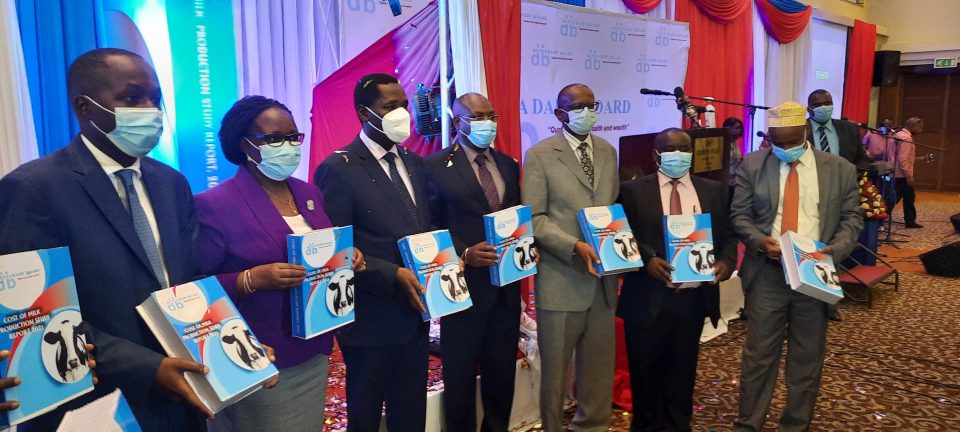Agriculture Cabinet Secretary Peter Munya says cost of production of milk has dropped by 20 per cent in the last five years but remains high at Sh 23 per litre
Speaking while launching a report by the Kenya Dairy Board (KDB) on the cost of production of milk at a Nairobi Hotel, Munya said the key driver of costs are in feeds and labour.
He said the government is working with stakeholders to come up with ways to further reduce the production costs so that the farmers can earn more from their produce and also to stabilize prices.
Munya however said the dairy industry is still very profitable and urged investors to take advantage of local market as well as new and emerging markets like Tanzania and the Democratic Republic of Congo (DRC).
He noted that DRC is soon joining the East Africa Community and has a large market for milk as the country currently gets milk from Europe which is far away as compared to Kenya.
Munya said the country’s milk production has recorded impressive growth with milk annual production increasing by 12 per cent.
He said the country’s milk production in 2019 was approximately 11% of the 49.9 billion litres of milk produced in Africa.
The industry employs 750,000 people directly, while another 500,000 are employed indirectly in service provision.
Munya said following the recent visit by Tanzanian President Samia Suluhu, Kenya has requested Tanzania to remove the veterinary fees of TSh 2,000 per kilogram (approximately KSh 95) imposed on Kenyan milk exported to Tanzania.
He said when implemented, this will facilitate exports of our milk products, especially UHT milk, which was seriously affected by the introduction of the fees.
On the cost of milk production in Kenya, Munya said the report has articulately captured current data on dairy farm dynamics, the cost of producing milk under different production systems and scales, the cost components, the trends between 2015 and 2020, and proposed several recommendations to manage the cost of milk production and improve productivity of milk per cow.
He said, from the findings of the study, dairy farming is profitable and on average, a dairy farmer in 2019 earned milk profits of KSh 12.20 per litre compared to KSh 4.20 in 2014.
The profitability varied with production system, highest for semi-zero grazers at KSh 14.27 per litre, and lowest for zero grazers at KSh 8.57 per litre.
The CS said average profitability per litre of milk produced rose to an average of KSh 16.20 in 2019, when other farm revenues such as sale of livestock and manure were considered.
“This should excite and motivate farmers and potential investors to increase investment in milk production,’’ he noted.
Munya noted that while the cost of milk production remains high at an average total cost of KSh 23.30 per litre for zero grazers, KSh 23.00 for semi-zero grazers, and KSh 17.24 for open grazers, the average cost of producing milk declined by 20% over the last five years.
“This shows that we are making headway in managing the cost of producing milk, although a lot more is still required to make our industry more competitive regionally and globally,’’ he said.
National productivity of milk per cow, which increased by 19% from 6.4 litres in 2014 to 7.9 litres in 2019 is still relatively low when compared with average productivity per cow per day in advanced dairy nations such as 34 litres in Denmark and 39 litres in Israel.
The report shows that the largest cost components of producing milk are feeding and labour.
He said gross revenue from milk improved by 3% over the last five years, suggesting an improvement in producer prices for milk. This is expected to be higher since it was done before interventions were undertaken by Ministry in Jan 2020 to improve and stabilize milk producer prices in the country.
However, it was noted that there is a declining herd sizes per farm over the last five years with the average herd size per farm declined from 9 animals in 2014 to 6 animals in 2019 undermining the country’s capacity to be self- sufficient in milk and milk products.
He urged farmers to adopt labour saving technologies such as chaff cutters and milking machines are required by dairy farmers to manage operational costs.

